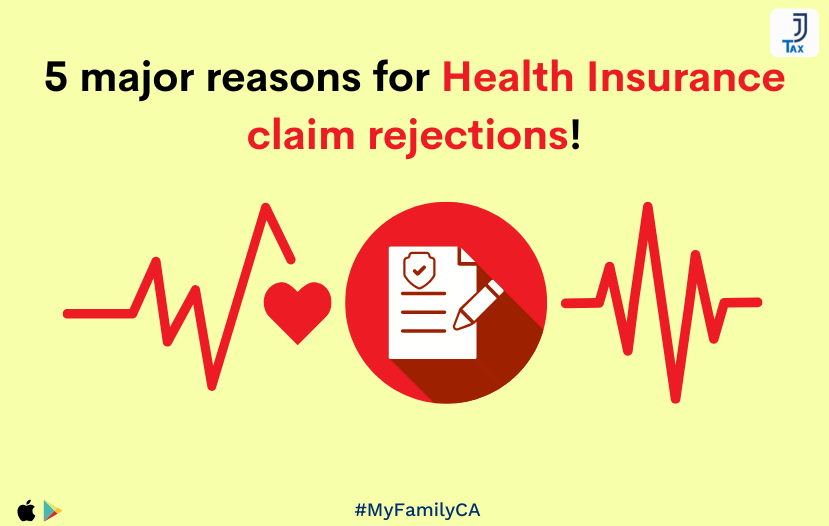If you do not want to be a victim of denied medical insurance claims, arm yourself with accurate knowledge. Read your health insurance policy carefully and become acquainted with the policy coverage as well as all applicable terms and conditions to never find yourself in financial distress in time of need.

Inaccurate Information
It is most likely one of the most common reasons for claim rejections. The insurance policy is predicated on the information provided by the insured when filling out the application form. All insurance policies are written in good faith, and the insured must give accurate and full information when signing the policy. If a disparity is identified or an illness is revealed that was not previously disclosed to the insurer; the claim will be refused.
Hiding medical history or failing to disclose pre-existing diseases
When purchasing health insurance coverage, you must provide truthful information about your medical records. Some consumers believe disclosing their medical history may result in policy rejection or a higher premium, although this is rarely the case. If you hide your medical history while purchasing the policy, the insurer will deny any claims arising from an existing health condition that were not disclosed. Similarly, certain lifestyle questions, such as smoking habits, are asked by insurers when you buy or renew health insurance coverage. If a medical concern emerges due to your concealed smoking habit, your insurance company will not reimburse treatment costs. If you don't want your claim to be denied, don't keep your medical history and lifestyle choices hidden. You may have to pay a little higher premium, but you will not be required to pay for any medical consequences caused by the conditions stated.
Waiting Period
Health insurance policies, regardless of provider, do not cover any medical expenses within the first 30 days after purchase. During this period, also known as the cooling period, only claims stemming from an accident can be evaluated. This waiting period may be extended for some serious diseases or maternity benefits. Filing a claim within this period results in Mediclaim denial.
Failure to notify the insurer on time
A fatal accident can be a distressing occurrence, and the person or their family members may forget to notify the policy provider right away. This blunder could exacerbate their concerns. Most health insurance agreements state unequivocally that the insurer must be notified of a hospitalization within 24 (or, in some circumstances, 48) hours, or no coverage will be paid. As a result, it is critical to obtain the coverage from a provider who is available 24 hours a day, seven days a week and answers quickly. Also, appoint a nominee to notify the insurer and handle the remaining paperwork if the policyholder is unable to do so.
Exclusions
Health insurance provides financial protection if you become ill and require medical attention. However, there are several circumstances in which you cannot file a claim. These are referred to as exclusions. If you file a claim against a policy exclusion, it will be denied. To avoid this, always study the policy document carefully. If you have any questions or do not understand any section of your policy paper, you must contact your health insurance provider to obtain clarity.
The Bottom Line
It is vital to understand your policy's exclusions as it is to appreciate its advantages. People frequently ignore the tiny print of rules, losing out on the exclusions and limitations, leading to a negative impact during the crisis. Remember, always read your policy carefully and contact your insurance provider if you have any questions or concerns. By doing so, you can ensure that you and your loved ones are prepared for any medical emergencies that may arise.